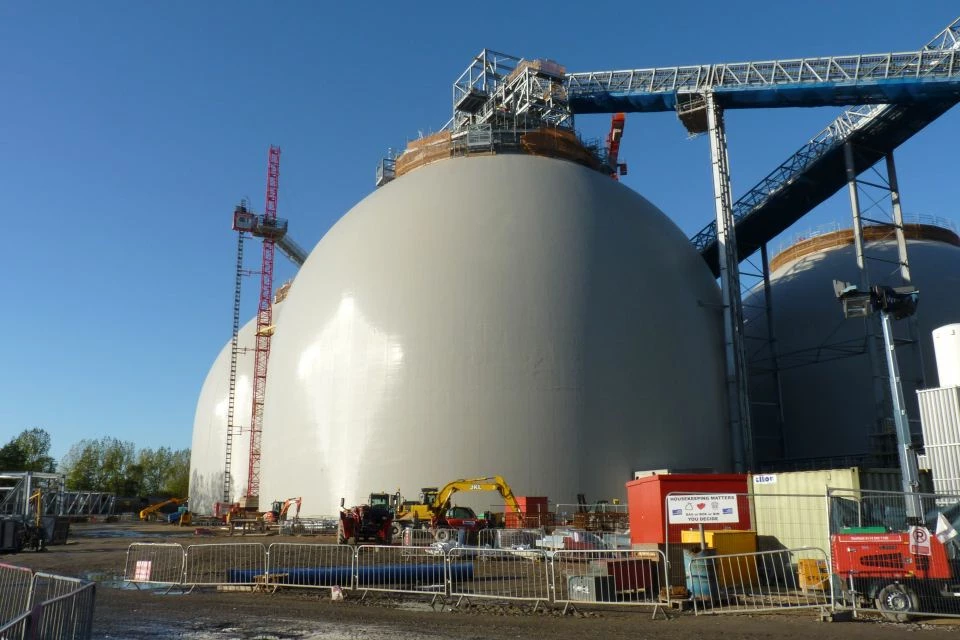
Northern Powerhouse could benefit from 46,000 new ‘green’ jobs by 2030
Workers across the North could benefit from the creation of 46,000 new green jobs by 2030, according to new data.
Think-tank The Institute for Public Policy Research (IPPR) has published a report calling on the Government to “learn from the mistakes of the past” that saw Northern communities disproportionately impacted by job losses in the carbon energy sector.
The Northern Powerhouse region is currently home to the highest number of coal and gas power stations in England, but communities near coalfields continue to feel the negative impact of closures and job losses.
According to the IPPR, the region could lose a further 28,000 jobs in coal, oil and gas by 2030.
But data shows that despite the presence of coal- and gas-producing facilities, the North also generated nearly half (48%) of the UK’s renewable electricity from 2005 to 2014.
The IPPR report, published today (October 22), states that if the North gets the right support from the Government, it has the potential to lead a clean energy revolution.
It calls for a “just transition” so that Northern energy workers can continue accessing well-paid skilled jobs in the low-carbon energy sector.
For the Government to achieve this, the IPPR said it need to squash the uncertainty surrounding Brexit, improve the country’s education and skills system and provide long-term policy for decarbonisation at the heart of its Industrial Strategy.
Josh Emden, IPPR research fellow and report co-author, said: “The Government must learn from the mistakes of the past and ensure that this time there is a just transition into the low carbon energy sector and beyond, for workers in the North of England who have powered the UK for decades.
“The good news is that the opportunity is there for the North of England to become a powerhouse for the UK once again, provided the government takes the critical policy action needed.”
Co-author Luke Murphy, associate director at the IPPR, commented: “With nearly half of the UK’s renewable energy being produced in the North, it is clear that the region is ideally placed to deliver a green jobs revolution of 46,000 new jobs by 2030.
“We know that decarbonising the economy is an urgent necessity if we are to limit the impacts of global warming.”
He continued: “What the UK needs now is for Government to commit to long-term policy for decarbonisation, where communities are protected from decline and supported to thrive through mechanisms like the industrial strategy and an improved skills system, so that we can realise a new era of prosperity for the communities that quite literally power the powerhouse.”
IPPR North director Sarah Longlands said: “This report highlights the importance of the energy sector for the North’s future prosperity, and for the first time makes the connection between economic opportunity and economic justice by calling for a ‘just transition’.
“The benefits of the energy sector in the North will only be fully realised if the people who are already working in the industry are given the time, skills and support which enables them to make the most of new opportunities in low carbon energy.”
The CEO of the business behind the UK’s largest power station, Drax, also weighed in on the report.
According to chief exec Andy Koss, the North is “ideally placed” to take advantage of the opportunities for clean grow created by a lower carbon economy, and could play “a vital role in helping the UK and the world to meet its climate targets”.
He explained: “Over a decade ago, Drax started its journey to phase out coal. We are now by far the biggest renewable power producer in the UK, having converted two-thirds of our generating units to use sustainable biomass instead of coal.
“We have also reskilled our colleagues to use a renewable fuel and play an active role in the low carbon transition.
“We’re exploring new carbon capture technologies which could enable us to further decarbonise and deliver negative carbon emissions – vital if we are to meet the climate challenge set out by the IPCC.”
Drax plans to complete the phase-out of coal “well ahead” of the Government’s 2025 deadline, Mr Koss said, adding: “We will still provide flexible, dependable electricity by repowering our remaining two coal units to use natural gas – providing highly efficient, flexible power when it is most needed.
“This will not only help support the power grid as it transitions to a low carbon system, it will also preserve the life of the plant and help protect jobs.”
Looking to promote your product/service to SME businesses in your region? Find out how Bdaily can help →








 Raising the bar to boost North East growth
Raising the bar to boost North East growth
 Navigating the messy middle of business growth
Navigating the messy middle of business growth
 We must make it easier to hire young people
We must make it easier to hire young people
 Why community-based care is key to NHS' future
Why community-based care is key to NHS' future
 Culture, confidence and creativity in the North East
Culture, confidence and creativity in the North East
 Putting in the groundwork to boost skills
Putting in the groundwork to boost skills
 £100,000 milestone drives forward STEM work
£100,000 milestone drives forward STEM work
 Restoring confidence for the economic road ahead
Restoring confidence for the economic road ahead
 Ready to scale? Buy-and-build offers opportunity
Ready to scale? Buy-and-build offers opportunity
 When will our regional economy grow?
When will our regional economy grow?
 Creating a thriving North East construction sector
Creating a thriving North East construction sector
 Why investors are still backing the North East
Why investors are still backing the North East